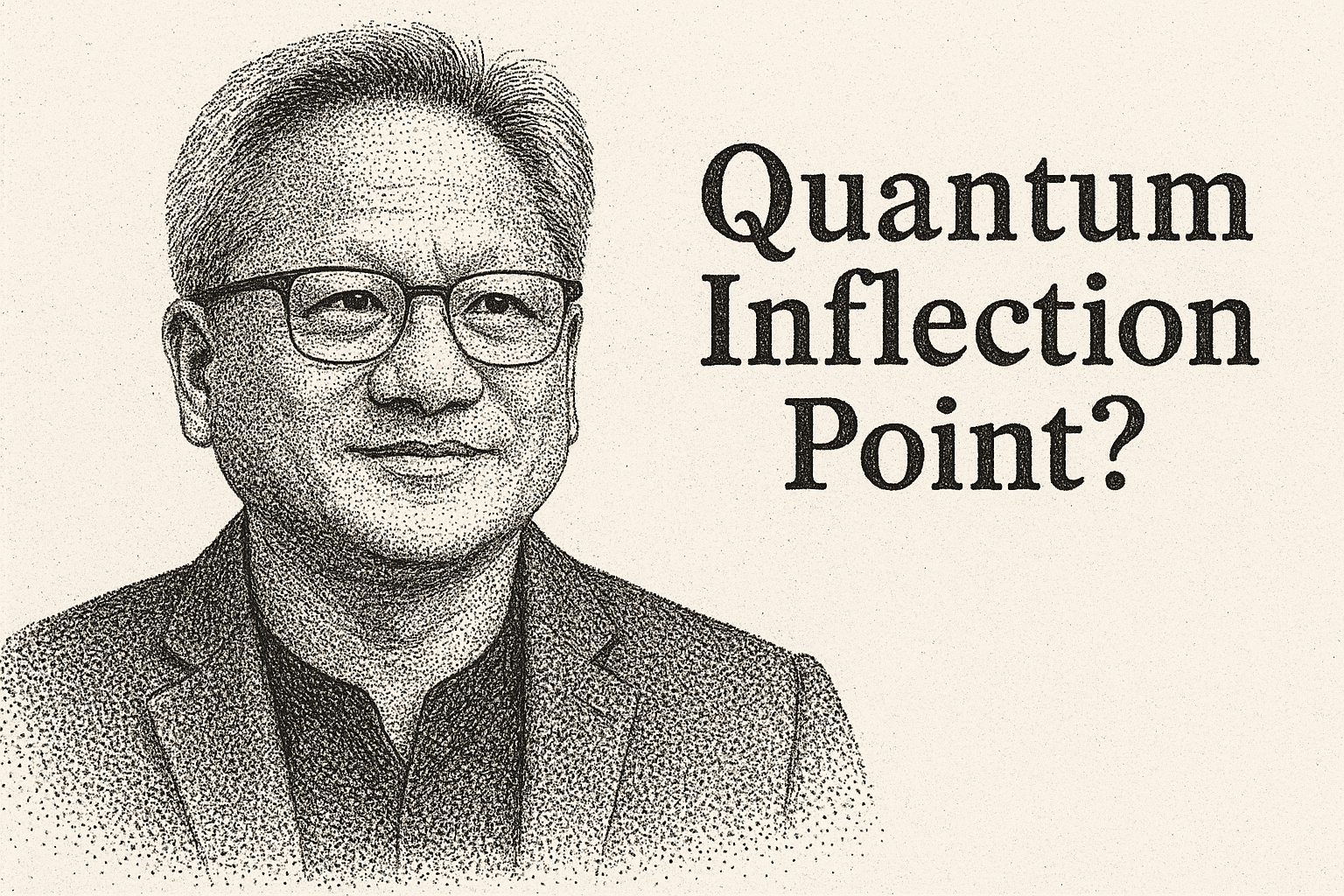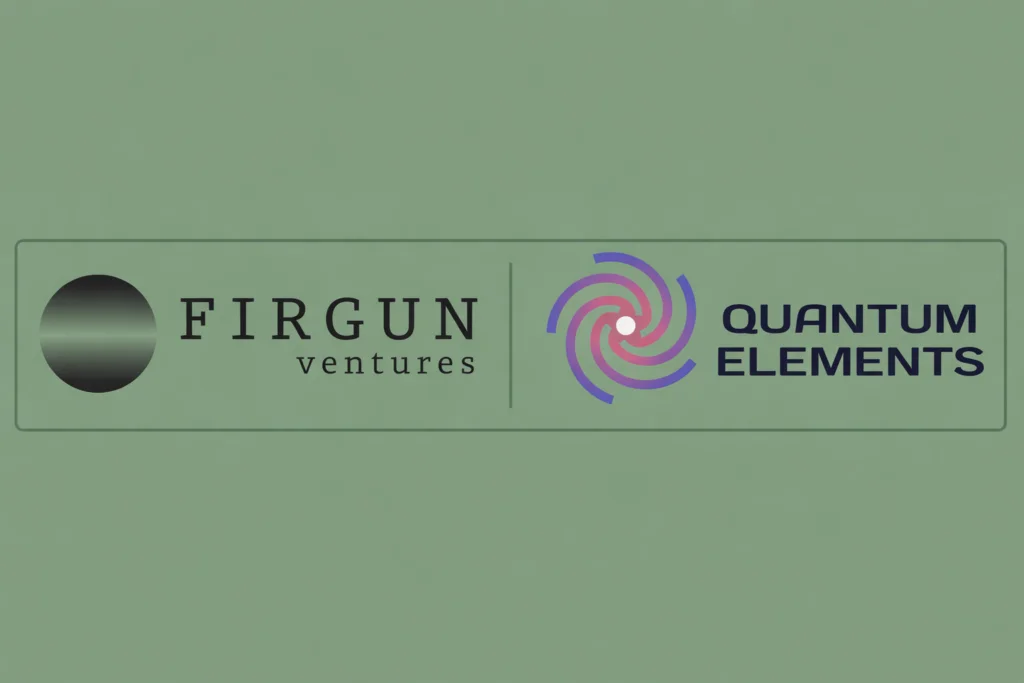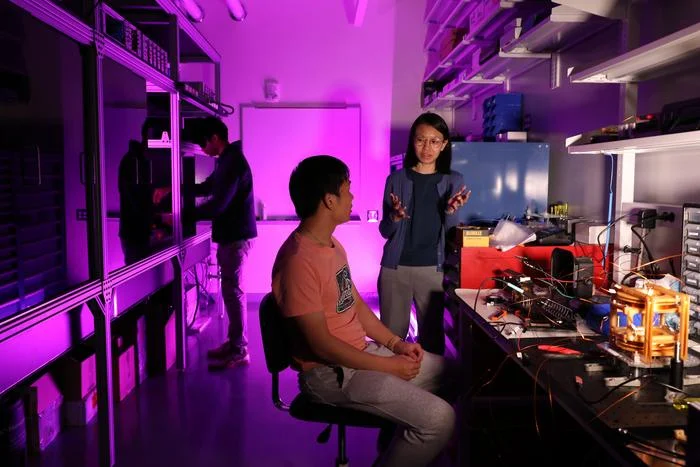Insider Brief
- NVIDIA CEO Jensen Huang said quantum computing is nearing an “inflection point” and could start solving real-world problems within a few years, signaling a more optimistic outlook.
- Huang praised Europe’s growing quantum ecosystem, highlighted NVIDIA’s hybrid quantum-classical Cuda-Q platform, and met with French startup Pasqal during GTC Paris.
- His comments follow previous skepticism about near-term usefulness of quantum systems, which had contributed to stock declines for several quantum companies, according to CNBC.
NVIDIA CEO Jensen Huang says quantum computing is closer than expected to solving practical problems, signaling a notable change in his outlook — and the broader industry’s.
“Quantum computing is reaching an inflection point,” Huang said Wednesday during his keynote speech at NVIDIA’s GTC Paris developer conference, according to CNBC. The comment marks a departure from his more cautious tone last year, when he suggested useful quantum computers might still be two decades away. The statement causes a ripple across the quantum industry, sinking many of the quantum computing stocks.
So far, the field has been focused on the promise of delivering commercial payoff, however that effort is tough from both a technological and a communication standpoint.

Quantum computers promise to perform calculations that classical computers can’t efficiently solve, using quantum bits — or “qubits” — instead of the binary ones and zeroes that power conventional systems. Because qubits can represent both zero and one at the same time, quantum systems could theoretically explore many solutions at once, making them attractive for areas such as drug discovery, financial modeling and materials science. However, quantum devices are notoriously touchy — and tiny bits of environmental noise — such as heat or even cosmic rays — can interfere with its ability to make correct calculations.
But signs of real progress are emerging, and so are signs of investor confidence.
Publicly traded quantum companies like IonQ and Rigetti Computing saw an initial jump in their stock prices earlier this week, following IonQ’s $1.1 billion acquisition of Oxford Ionics, a UK-based startup developing trapped-ion quantum processors. IBM also released information about its progress in error correction that shifts the timeline of fault tolerant quantum computers — or devices that can manage and mitigate some of those aforementioned environmentally caused errors and mistakes — up to 2029.
The surge comes alongside renewed enthusiasm from tech leaders like Huang, who spent part of his visit to Paris meeting with members of the European quantum ecosystem. Among them was Pasqal, a French quantum startup working on neutral atom technology.
“We are within reach” of being able to apply quantum computers “in areas that can solve some interesting problems in the coming years,” Huang said Wednesday, while highlighting NVIDIA’s own contributions to the field, including its Cuda-Q platform — a hybrid quantum-classical framework designed to let developers run quantum code alongside traditional computing infrastructure. “This is a really exciting time.”
The remarks reflect a significant shift. In previous appearances, Huang had cast doubt on the near-term commercial viability of quantum systems, suggesting timelines closer to 20 years were more realistic. His past comments had a chilling effect on the market. As CNBC reported, his earlier remarks sent shares of companies like IonQ, Rigetti, and D-Wave Quantum into a downward spiral.
More recently, Huang has acknowledged that his statements may have been misunderstood and that the industry’s progress has outpaced even his expectations. According to CNBC, Huang said he was surprised by the market reaction and admitted his comments “came out wrong.”
NVIDIA, best known for its dominance in AI chips, is positioning itself to benefit from quantum’s rise without betting exclusively on any one architecture. Its CUDA-Q platform supports a variety of back-end quantum systems and is designed to bridge classical and quantum workloads, a likely necessity given current hardware limitations.
Meanwhile, other tech giants — beyond the emerging group of quantum startups and scaleups — are also doubling down on quantum. In addition to IBM’s error-correction advance, Google late last year introduced Willow, its newest quantum chip, which it said represents a milestone in error correction.















